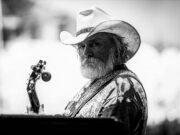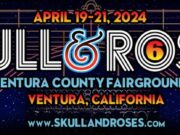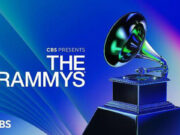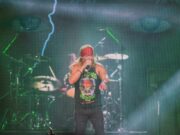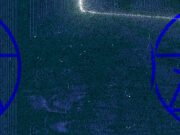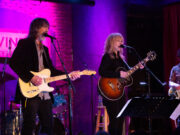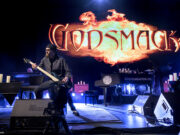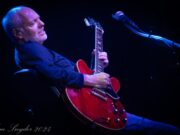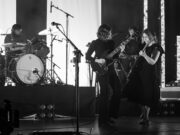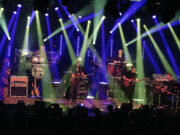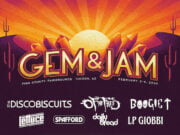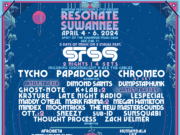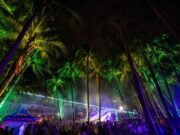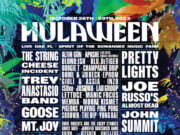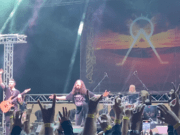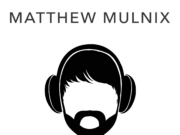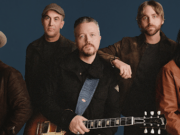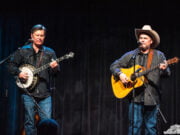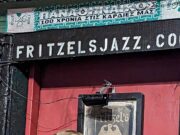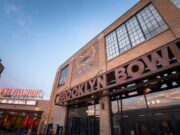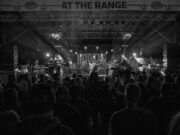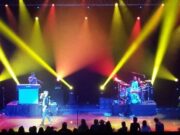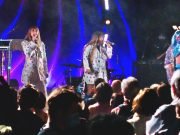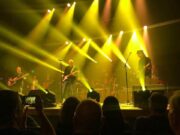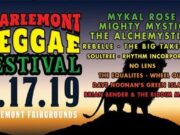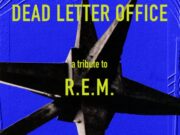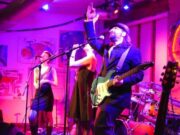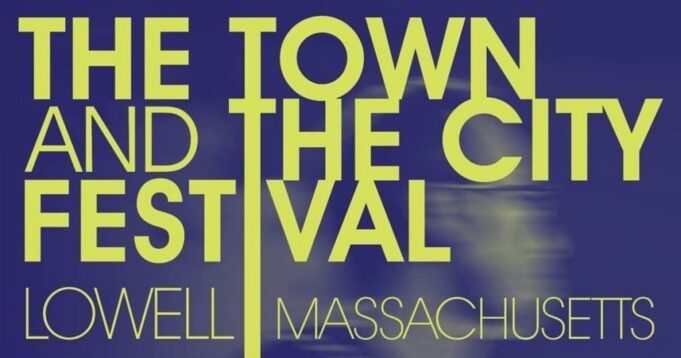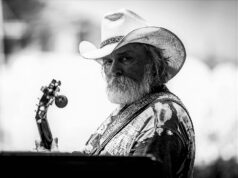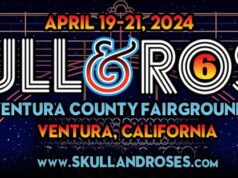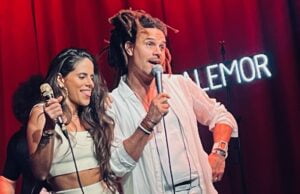The Town and The City Festival Lowell, MA October 19 & 20, 2018 – Day 1 – The Poets
by Kathy Murray An interview with Scarlett Sabet and Janaka Stucky
Scarlett Sabet – Poem for Jack Kerouac
https://www.youtube.com/watch?v=aMANeCLWWRE&feature=youtu.be
I had first heard about the innaugural run of The Town and The City Festival on Instagram from the acclaimed poetess, Scarlett Sabet. The festival had been created surrounding the life and works of Jack Kerouac, a Lowell resident for most of his life. Scarlett herself was an avid fan of Kerouac, and she was traveling from England to perform a reading for the festival. I was absolutely thrilled. I had been waiting for her to come back to the States, more specifically to the Northeast, so that I could go see her read. I had been a fan of her poetry for quite some time, but had only seen snippets of her incredibly moving readings online and I could not wait to experience it firsthand. I reached out to her soon after getting my press credentials for the show, to find out if she would like to sit down for an interview. I was pleasantly surprised when she agreed, and doubly so when she asked if I would like to also include the poet Janaka Stucky, who was on the bill with her that night. I, of course, was more than happy to agree! The first night I had planned to cover the poetry readings at Christ Church United, and then go to Zorba’s Olympia Hall to see Gary Hoey play. At that point I was still unsure of who I was going to be checking out the second night of the festival, but I had a couple of bands in mind.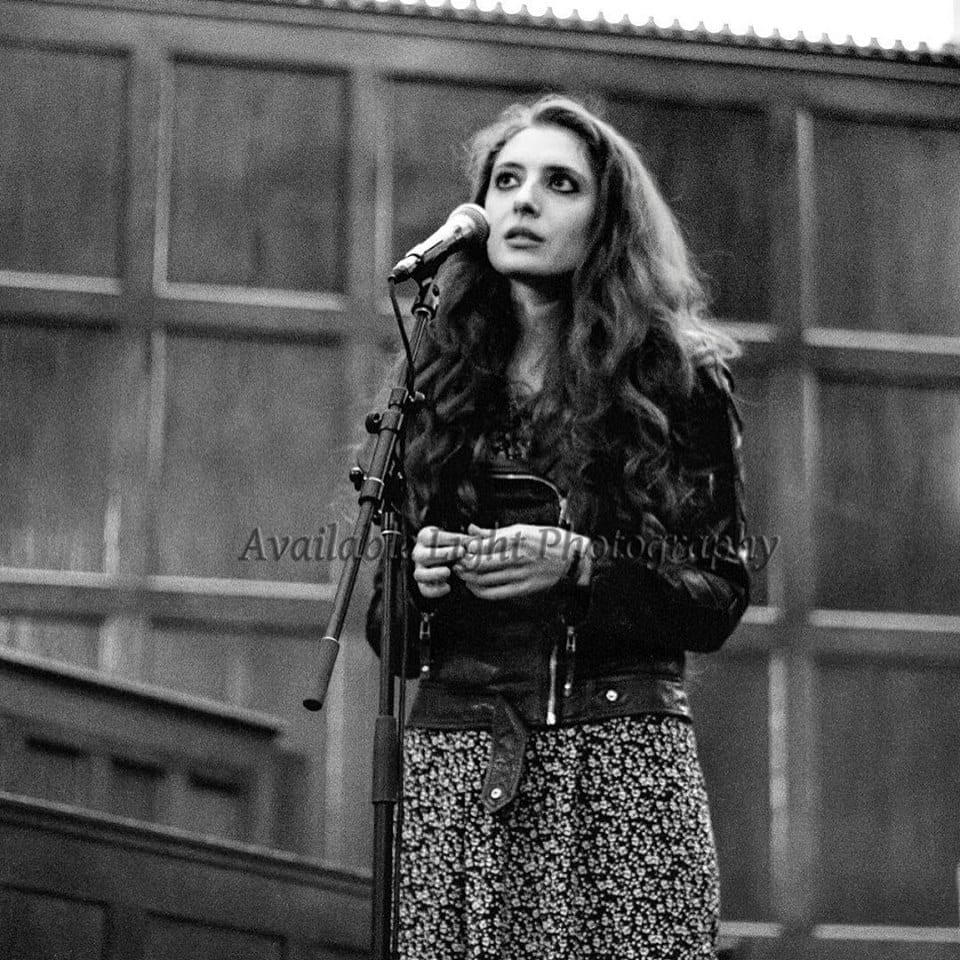 Getting back to Scarlett and Janaka, and our interview. We had discussed meeting at the venue just after they did their soundcheck at about 6:00pm, to allow enough time before the readings began. When I arrived, I entered the Parish Hall, and waited while one of the staff went to get Scarlett and Janaka. When they came out, Scarlett greeted me like an old friend, giving me a big hug, and I presented her with a small token of appreciation for agreeing to do our interview, a painting I had done for her. Janaka suggested we go into the room that had been set up as the ‘Green Room’ for the event, so we made our way in there. LMN&R: I do very free-form kind of interviews. I put together some basic questions for you, Scarlett, before I found out that I was interviewing Janaka as well. First off, Janaka, I want to start off by saying Jack White, and his using your work, thats pretty freaking cool! Janaka: Yeah, it was kind of a dream come true. I mean, I’ve been listening to his music long before I was ever signed to Third Man. Actually I was just recently looking, I don’t remember how I came across this, but I had done this piece for a website and there was a question of what song do you aspire towards with your poetry, or something like that. And I had chosen this live recording of White Stripes covering Sun Houses’ ‘Death Letter A’. I wrote about it and I talked about how he uses his guitar solos to convey emotion, and that was how I wanted to use silence in my poems. And I wrote that, like, 3 or 4 years before he signed me to Third Man. So it was literally like a dream come true, and like Oh My God (laughs). LMN&R: With ‘Zoreh’, I noticed that with ‘Elegy’, well first, it’s like the longest piece in the book, and I was wondering, what was your inspiration for it? Scarlett: So with ‘Elegy’, whenever I read it, I always say this is a poem I didn’t want to write; but I knew I’d have to. It was, I mean, it was personal grief across death, and also kind of old grief, reliving childhood stuff. I’m sure there are more layers to come, but when you’re an adult, you kind of think okay, I’ve already dealt with anything that upset me as a kid. But it’s events that happen that kind of brought it up again, and I was like, I’m going to give myself one poem for this and that’s it. I was abroad this January, and it was like the pressure, with just the physical moving, and I just sat down and just wrote it all. Pretty much that’s just how it came out. And it is a long one, and it’s interesting performing it. LMN&R: Very raw. Very emotional. I know I definitely connected with it having lost numerous people in my life, not just as an adult, but at a very young age, and experiencing grief at very different emotional levels. You can definitely feel the emotion of the piece and connect with it through that. Scarlett: That’s good. That’s good, because I think something like that personal grief, you don’t want it to be – and this is the other thing of being an adult, being like well everyone goes through this. I think there’s a line in the poem like, ‘but what about this is special, that which has happened to you?’ because part of it’s like pull yourself together, you know, getting sick of yourself. And it just becomes the wait, and that thing of ‘it’s going to take time’ and then the question ‘well how long does time take?’. People are like, ‘time takes time, give time time’. Like, no one wants to hear that, I want to be better now. And looking back, I learned so much and I’m a stronger person getting on the other side of it. But it was uncomfortable, but I also think that it’s uncomfortable, awkward things, restriction or difficulties, you know, good things come out of it sometimes. LMN&R: There’s an element of rediscovery of yourself. I know in some ways it was for me. One of the parts I was curious of; you spoke of the ‘wet isle of Lavender in bloom’. What isle were you talking about? Scarlett: It’s a place called the Isle of Bute in Scotland. So my mom is French-Scottish, and it was where her burial was taking place. And I’ve got generations of family buried there. And it was just going over on the ferry, and I know I say in the poem that it was ‘small and unrelenting’ cause it was just like, ‘Why am I in London? I should just move here,’ you know what I mean? And I was just reassessing stuff, and it just made a mockery of city life; it was all the stuff of it, like it was this tiny small place, but it was making a pilgrimage back to it. I hadn’t been there with someone, I hadn’t been there since I was seventeen, so a hell of a lot had happened. So it had been, like, ten years, and it was very interesting, just the gap of what had changed personally and professionally. What is also interesting, the Marquess of Bute, the nobleman that lived there – and his descendants still live there – in the Victorian times, commissioned William Burges to build The Tower House (in Kensington), where he was Burges’ patron. So that was kind of an interesting thing. And Mount Stuart is also very similar to the Tower Houses design. LMN&R: What is your most recent release? I apologize again that I didn’t get a lot of time to do much research on you.
Getting back to Scarlett and Janaka, and our interview. We had discussed meeting at the venue just after they did their soundcheck at about 6:00pm, to allow enough time before the readings began. When I arrived, I entered the Parish Hall, and waited while one of the staff went to get Scarlett and Janaka. When they came out, Scarlett greeted me like an old friend, giving me a big hug, and I presented her with a small token of appreciation for agreeing to do our interview, a painting I had done for her. Janaka suggested we go into the room that had been set up as the ‘Green Room’ for the event, so we made our way in there. LMN&R: I do very free-form kind of interviews. I put together some basic questions for you, Scarlett, before I found out that I was interviewing Janaka as well. First off, Janaka, I want to start off by saying Jack White, and his using your work, thats pretty freaking cool! Janaka: Yeah, it was kind of a dream come true. I mean, I’ve been listening to his music long before I was ever signed to Third Man. Actually I was just recently looking, I don’t remember how I came across this, but I had done this piece for a website and there was a question of what song do you aspire towards with your poetry, or something like that. And I had chosen this live recording of White Stripes covering Sun Houses’ ‘Death Letter A’. I wrote about it and I talked about how he uses his guitar solos to convey emotion, and that was how I wanted to use silence in my poems. And I wrote that, like, 3 or 4 years before he signed me to Third Man. So it was literally like a dream come true, and like Oh My God (laughs). LMN&R: With ‘Zoreh’, I noticed that with ‘Elegy’, well first, it’s like the longest piece in the book, and I was wondering, what was your inspiration for it? Scarlett: So with ‘Elegy’, whenever I read it, I always say this is a poem I didn’t want to write; but I knew I’d have to. It was, I mean, it was personal grief across death, and also kind of old grief, reliving childhood stuff. I’m sure there are more layers to come, but when you’re an adult, you kind of think okay, I’ve already dealt with anything that upset me as a kid. But it’s events that happen that kind of brought it up again, and I was like, I’m going to give myself one poem for this and that’s it. I was abroad this January, and it was like the pressure, with just the physical moving, and I just sat down and just wrote it all. Pretty much that’s just how it came out. And it is a long one, and it’s interesting performing it. LMN&R: Very raw. Very emotional. I know I definitely connected with it having lost numerous people in my life, not just as an adult, but at a very young age, and experiencing grief at very different emotional levels. You can definitely feel the emotion of the piece and connect with it through that. Scarlett: That’s good. That’s good, because I think something like that personal grief, you don’t want it to be – and this is the other thing of being an adult, being like well everyone goes through this. I think there’s a line in the poem like, ‘but what about this is special, that which has happened to you?’ because part of it’s like pull yourself together, you know, getting sick of yourself. And it just becomes the wait, and that thing of ‘it’s going to take time’ and then the question ‘well how long does time take?’. People are like, ‘time takes time, give time time’. Like, no one wants to hear that, I want to be better now. And looking back, I learned so much and I’m a stronger person getting on the other side of it. But it was uncomfortable, but I also think that it’s uncomfortable, awkward things, restriction or difficulties, you know, good things come out of it sometimes. LMN&R: There’s an element of rediscovery of yourself. I know in some ways it was for me. One of the parts I was curious of; you spoke of the ‘wet isle of Lavender in bloom’. What isle were you talking about? Scarlett: It’s a place called the Isle of Bute in Scotland. So my mom is French-Scottish, and it was where her burial was taking place. And I’ve got generations of family buried there. And it was just going over on the ferry, and I know I say in the poem that it was ‘small and unrelenting’ cause it was just like, ‘Why am I in London? I should just move here,’ you know what I mean? And I was just reassessing stuff, and it just made a mockery of city life; it was all the stuff of it, like it was this tiny small place, but it was making a pilgrimage back to it. I hadn’t been there with someone, I hadn’t been there since I was seventeen, so a hell of a lot had happened. So it had been, like, ten years, and it was very interesting, just the gap of what had changed personally and professionally. What is also interesting, the Marquess of Bute, the nobleman that lived there – and his descendants still live there – in the Victorian times, commissioned William Burges to build The Tower House (in Kensington), where he was Burges’ patron. So that was kind of an interesting thing. And Mount Stuart is also very similar to the Tower Houses design. LMN&R: What is your most recent release? I apologize again that I didn’t get a lot of time to do much research on you.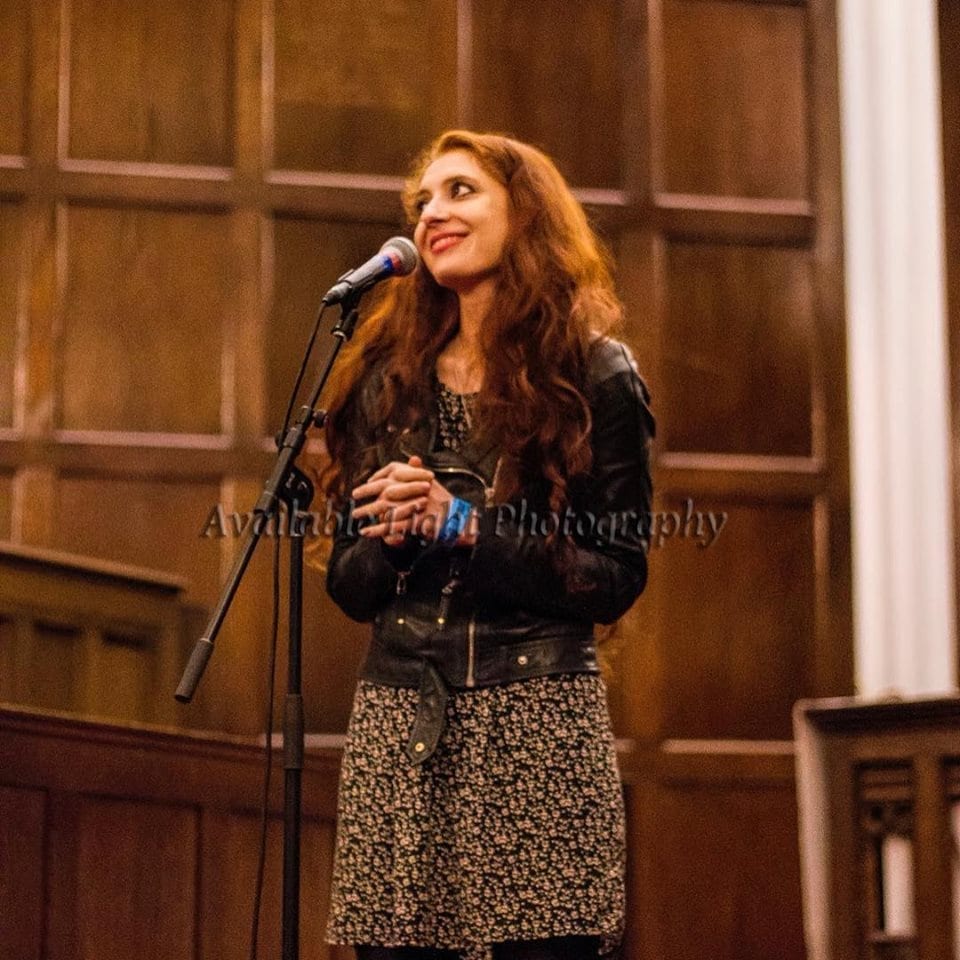 Janaka: So I have a book forthcoming in April 2019 called ‘Ascend, Ascend’ and it’s a book-length poem, it’s a long ecstatic, mystical poem that I wrote sequestering myself in a tower of a 100-year-old church for 20 days. And I was sort of doing intermittent fasting and some somatic rituals to kind of bring myself in and out of trance states while I wrote it. That’s coming out in the spring. What I’ll be reading from tonight is my book that came out in 2015 with Third Man, called the ‘Truth Is We Are Perfect’; and it’s funny, going back to your first question, because I also have a poem called ‘Elegy’ in this book, and it’s the shortest poem (all laughing). Maybe I’ll do it tonight. LMN&R: So I know that we talked online about this, but there’s a common astrological theme that moves throughout ‘Zoreh’, and I know that you’re very into astrology, as am I, being Pagan. I wondered how you got into it initially and how you choose to incorporate it into your work. Scarlett: That’s a good question. It was actually when Jimmy and I got together. We’d been together a couple of months, and he was like, ‘Let’s get your chart done.’ I knew my Sun sign but I didn’t know anything beyond that. So we got it done. And he opened it and was like hmmm, and I was like what does that mean? And I was like wait he’s got the blueprint to me and I don’t want to see this; let’s put it away. So I got really superstitious, and I put it away for a year. And then I read it, and it was actually really good, it was really accurate. And just kind of delving into it, and studying it; I think good astrology is very mathematical, it’s, you know, physics and math and it’s an ancient science. I think it is just, with bad astrology, I always say especially referencing ‘Lilith in the Midheaven’ from ‘Zoreh’, I always say that bad astrology gives good astrology a bad name. And when you mention it [astrology], people are like, oh you believe in that; it’s like yeah, I do believe in the coordinates, and the position of where I was born. I think Ted Hughes was very into astrology and he was very connected to nature, the kind of bloodiness of nature, and he wrote a letter of his daughter’s birth chart when she was born (Frieda Hughes). Every President up until JFK had an astrologer and, it’s just, it’s not something new, it’s something old that’s kind of been lost touch with. I don’t know, looking back, it’s certain astrological points denote my life. Going back to ‘Elegy’, Neptune and Sagittarius, those 2 years from 2015 to 2017, were pretty intense for me. I’m Sagittarius rising, and obviously now I’ve got a Saturn return, which is really interesting. So there’s a new poem I’ll be reading tonight as well where I mention Kerouacs astrology. It’s something that is there, that I use in the imagery, and people can delve more into it if they want to. And people, like yourself, that already get the references. But, like with ‘Lilith in the Midheaven’, I like the structure of the Synastry [chart], and just discovering it and being like like ‘oh so that’s why its like that’. LMN&R (to Janaka): Who would you say your influences are in your poetry? Janaka: Specifically, I would say I actually started as a both as a performer and a writer. Outside of other poets, I’ve been influenced a lot by both early blues musicians as well as what I sort of refer to as blues based rock n roll. And what I love about that particular genre is how they use silence in their work, both in their performances and the song structure, and how the guitar bridge or guitar solo functions as silence. That, in the song, when the lyrics are no longer enough to express the emotion, it goes to guitar solo and the guitar can then express something that the words alone cannot. And I see silence functioning in my poems in a very similar way. I reach a point in every poem that is like a crescendo where I’m trying to touch the ineffable, and language doesn’t cut it any more. And that’s where silence functions in the poem. Within poetry as an influence, I would say, you know, I get compared a lot to Alan Ginsburg, but I wouldn’t actually chalk him up as an influence. I only really started looking at his performances and listening to his recordings after people started comparing me to him. But aesthetically, German romantics, French surrealists are probably my biggest influences.
Janaka: So I have a book forthcoming in April 2019 called ‘Ascend, Ascend’ and it’s a book-length poem, it’s a long ecstatic, mystical poem that I wrote sequestering myself in a tower of a 100-year-old church for 20 days. And I was sort of doing intermittent fasting and some somatic rituals to kind of bring myself in and out of trance states while I wrote it. That’s coming out in the spring. What I’ll be reading from tonight is my book that came out in 2015 with Third Man, called the ‘Truth Is We Are Perfect’; and it’s funny, going back to your first question, because I also have a poem called ‘Elegy’ in this book, and it’s the shortest poem (all laughing). Maybe I’ll do it tonight. LMN&R: So I know that we talked online about this, but there’s a common astrological theme that moves throughout ‘Zoreh’, and I know that you’re very into astrology, as am I, being Pagan. I wondered how you got into it initially and how you choose to incorporate it into your work. Scarlett: That’s a good question. It was actually when Jimmy and I got together. We’d been together a couple of months, and he was like, ‘Let’s get your chart done.’ I knew my Sun sign but I didn’t know anything beyond that. So we got it done. And he opened it and was like hmmm, and I was like what does that mean? And I was like wait he’s got the blueprint to me and I don’t want to see this; let’s put it away. So I got really superstitious, and I put it away for a year. And then I read it, and it was actually really good, it was really accurate. And just kind of delving into it, and studying it; I think good astrology is very mathematical, it’s, you know, physics and math and it’s an ancient science. I think it is just, with bad astrology, I always say especially referencing ‘Lilith in the Midheaven’ from ‘Zoreh’, I always say that bad astrology gives good astrology a bad name. And when you mention it [astrology], people are like, oh you believe in that; it’s like yeah, I do believe in the coordinates, and the position of where I was born. I think Ted Hughes was very into astrology and he was very connected to nature, the kind of bloodiness of nature, and he wrote a letter of his daughter’s birth chart when she was born (Frieda Hughes). Every President up until JFK had an astrologer and, it’s just, it’s not something new, it’s something old that’s kind of been lost touch with. I don’t know, looking back, it’s certain astrological points denote my life. Going back to ‘Elegy’, Neptune and Sagittarius, those 2 years from 2015 to 2017, were pretty intense for me. I’m Sagittarius rising, and obviously now I’ve got a Saturn return, which is really interesting. So there’s a new poem I’ll be reading tonight as well where I mention Kerouacs astrology. It’s something that is there, that I use in the imagery, and people can delve more into it if they want to. And people, like yourself, that already get the references. But, like with ‘Lilith in the Midheaven’, I like the structure of the Synastry [chart], and just discovering it and being like like ‘oh so that’s why its like that’. LMN&R (to Janaka): Who would you say your influences are in your poetry? Janaka: Specifically, I would say I actually started as a both as a performer and a writer. Outside of other poets, I’ve been influenced a lot by both early blues musicians as well as what I sort of refer to as blues based rock n roll. And what I love about that particular genre is how they use silence in their work, both in their performances and the song structure, and how the guitar bridge or guitar solo functions as silence. That, in the song, when the lyrics are no longer enough to express the emotion, it goes to guitar solo and the guitar can then express something that the words alone cannot. And I see silence functioning in my poems in a very similar way. I reach a point in every poem that is like a crescendo where I’m trying to touch the ineffable, and language doesn’t cut it any more. And that’s where silence functions in the poem. Within poetry as an influence, I would say, you know, I get compared a lot to Alan Ginsburg, but I wouldn’t actually chalk him up as an influence. I only really started looking at his performances and listening to his recordings after people started comparing me to him. But aesthetically, German romantics, French surrealists are probably my biggest influences.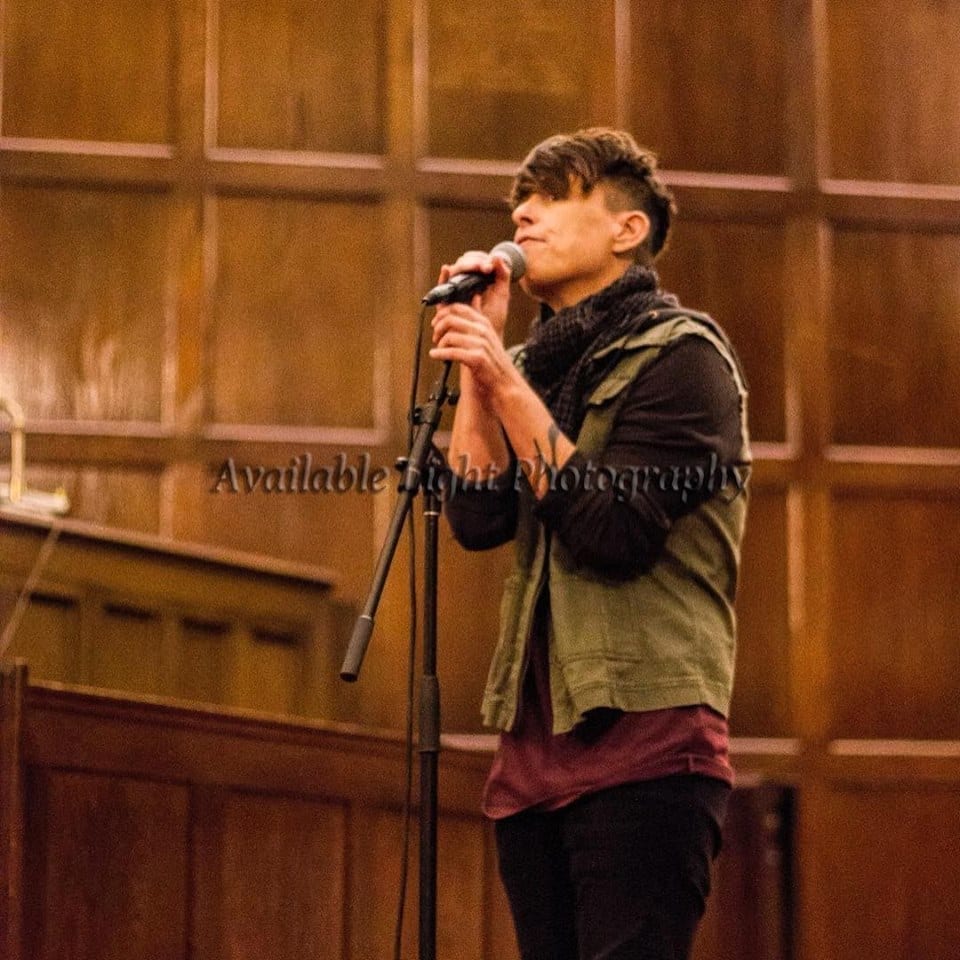 LMN&R: And I totally get what you mean as far as the guitar solos emoting the feeling of the song. I’m a musician myself, a singer and guitar player. Janaka: I should footnote my answer, cause for your publication that both my previous book with Third Man and my fourth book with Third Man, I wrote almost entirely while listening to doom and stoner metal. So bands like Sleep, Sun, Earth, like, really like long droning heavy type stuff, which kind of helped bring me into like a really meditative state. LMN&R: So it’s funny that you had mentioned ‘Lillith’, because that was actually going to be my next question for you. People interpret all art differently, and the way that I was experiencing it, was that love kind of renews your life every day. And how you can find somebody that is your signs mate and the connections that you share across those intricate ties. Like, within myself, finding someone who can feed my creative fire, and reciprocate it, which I feel is very important to a strong relationship. Now, I was going to ask your thoughts on that, but you already answered that in my last question to you. Who would you consider, other than Kerouac, your poetic infulences to be? Scarlett: Influences? That’s really interesting. I think I always say Ted Hughes and a lot of people are like, ‘but Sylvia Plath, don’t you like her?’. And I do, but there’s something about Ted Hughes. He’s so fairly, or unfairly, targeted after the very tragic circumstances of both of his wives [Sylvia Plath and Assia Wevill] suicides, and I kind of admire the way he carried on regardless. And also, just the kind of bloodiness, just…the intensity of his work, the bloodiness of nature, his whole energy and focus, and just how prolific he was. I think he’s an influence, not necessarily in style but in just [that raw emotion] yeah and I think it’s continuing on in the face of adversity. I also think it’s really interesting that he’d written all these love poems for Sylvia Plath that he didn’t publish until nine months before he died, and if he’d done that earlier, the public perception of him might have been a bit more sympathetic, and he kind of kept it to himself. And when his daughter – he won an award for it after his death, collected it on his behalf, she quoted him, I’m just paraphrasing, she said, ‘it’s a shame we have to give away our secrets’, which was just really interesting, him referring to the fact, that he released this massive volume of love poems for Sylvia Plath, which kind of proved that he did care. But intense influence, obviously my partner [Jimmy Page] is very influential, just in terms of how hard working he is and still is. And really, if I have an editor, it’s him. Like, and it’s funny, with ‘Lilith and the Midheaven’, the night before I sent it to the publisher, I was like, “Oh, I’m not sure, I don’t know, I was going to cut some stuff out”, and he was like, “Why are you doing that? That’s good, keep that in.” And he actually read [aloud] ‘Lillith in the Midheaven’. I was really questioning it. And he read it and in his voice I think, just the separation, it not being in my voice, I was like, ‘Oh okay, you know, I’m good with it.’ And he was like, “Yeah, you see, let’s keep that in, yeah?” So I did. And obviously talent is good and essential, but it’s just also working really hard and letting go of stuff. So I think he’s a great example for me, on a day to day basis. LMN&R: I want to ask both of you this next question – do you have any reading’s coming up? Scarlett: Yeah, so I’ve got in November in London I’m doing actually a kind of reading at the Troubador, and I’m doing it with Reel Art Press, because they put out a beat book earlier this year, so we’re kind of going to be exhibiting some beat paraphernalia, some of Ginsberg’s letters, and photos from the beat book. I’m going to be performing with this amazing poet called, Oakley, and I saw him perform, well we performed together at the Byline Festival [August 2018]. That’s real exciting.
LMN&R: And I totally get what you mean as far as the guitar solos emoting the feeling of the song. I’m a musician myself, a singer and guitar player. Janaka: I should footnote my answer, cause for your publication that both my previous book with Third Man and my fourth book with Third Man, I wrote almost entirely while listening to doom and stoner metal. So bands like Sleep, Sun, Earth, like, really like long droning heavy type stuff, which kind of helped bring me into like a really meditative state. LMN&R: So it’s funny that you had mentioned ‘Lillith’, because that was actually going to be my next question for you. People interpret all art differently, and the way that I was experiencing it, was that love kind of renews your life every day. And how you can find somebody that is your signs mate and the connections that you share across those intricate ties. Like, within myself, finding someone who can feed my creative fire, and reciprocate it, which I feel is very important to a strong relationship. Now, I was going to ask your thoughts on that, but you already answered that in my last question to you. Who would you consider, other than Kerouac, your poetic infulences to be? Scarlett: Influences? That’s really interesting. I think I always say Ted Hughes and a lot of people are like, ‘but Sylvia Plath, don’t you like her?’. And I do, but there’s something about Ted Hughes. He’s so fairly, or unfairly, targeted after the very tragic circumstances of both of his wives [Sylvia Plath and Assia Wevill] suicides, and I kind of admire the way he carried on regardless. And also, just the kind of bloodiness, just…the intensity of his work, the bloodiness of nature, his whole energy and focus, and just how prolific he was. I think he’s an influence, not necessarily in style but in just [that raw emotion] yeah and I think it’s continuing on in the face of adversity. I also think it’s really interesting that he’d written all these love poems for Sylvia Plath that he didn’t publish until nine months before he died, and if he’d done that earlier, the public perception of him might have been a bit more sympathetic, and he kind of kept it to himself. And when his daughter – he won an award for it after his death, collected it on his behalf, she quoted him, I’m just paraphrasing, she said, ‘it’s a shame we have to give away our secrets’, which was just really interesting, him referring to the fact, that he released this massive volume of love poems for Sylvia Plath, which kind of proved that he did care. But intense influence, obviously my partner [Jimmy Page] is very influential, just in terms of how hard working he is and still is. And really, if I have an editor, it’s him. Like, and it’s funny, with ‘Lilith and the Midheaven’, the night before I sent it to the publisher, I was like, “Oh, I’m not sure, I don’t know, I was going to cut some stuff out”, and he was like, “Why are you doing that? That’s good, keep that in.” And he actually read [aloud] ‘Lillith in the Midheaven’. I was really questioning it. And he read it and in his voice I think, just the separation, it not being in my voice, I was like, ‘Oh okay, you know, I’m good with it.’ And he was like, “Yeah, you see, let’s keep that in, yeah?” So I did. And obviously talent is good and essential, but it’s just also working really hard and letting go of stuff. So I think he’s a great example for me, on a day to day basis. LMN&R: I want to ask both of you this next question – do you have any reading’s coming up? Scarlett: Yeah, so I’ve got in November in London I’m doing actually a kind of reading at the Troubador, and I’m doing it with Reel Art Press, because they put out a beat book earlier this year, so we’re kind of going to be exhibiting some beat paraphernalia, some of Ginsberg’s letters, and photos from the beat book. I’m going to be performing with this amazing poet called, Oakley, and I saw him perform, well we performed together at the Byline Festival [August 2018]. That’s real exciting.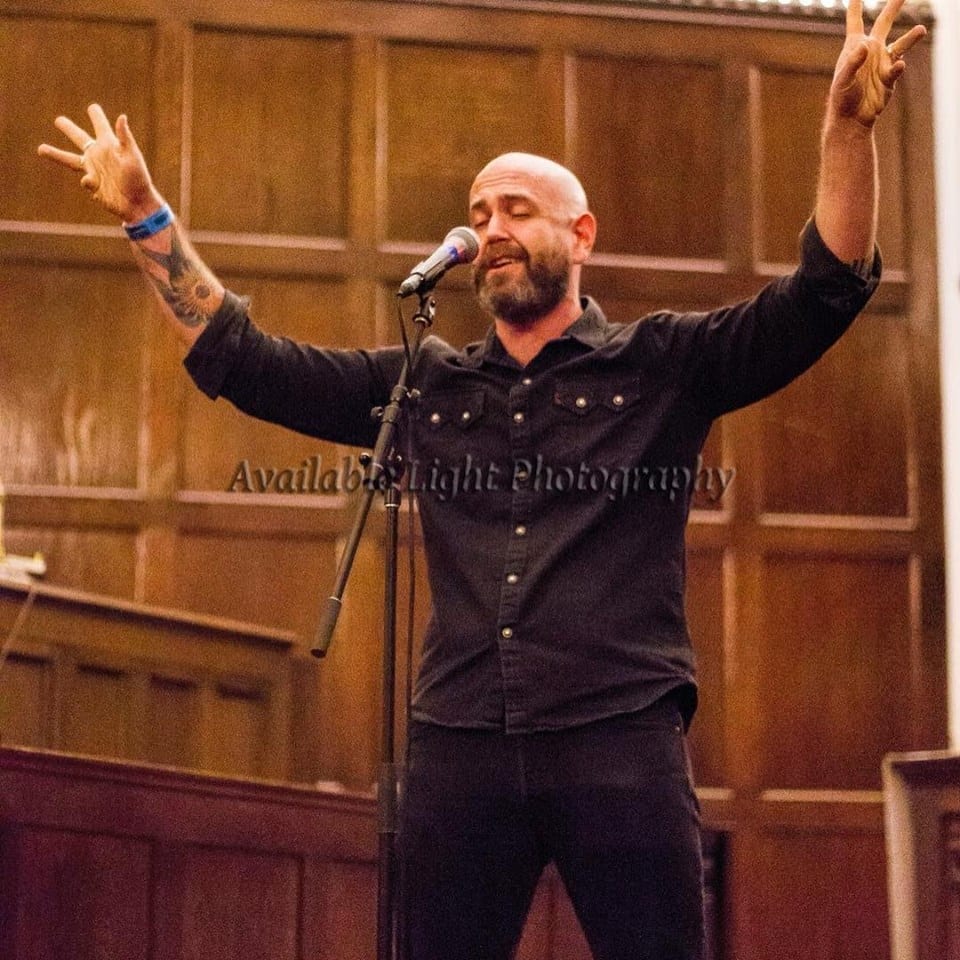 Janaka: I don’t have anything else coming up before the end of the year. Right now I’m sort of going into hibernation mode because I’ve got my new book coming out in April. I’m planning my book tour for next year, and with the last book I did thirty-five cities, or something like that, and I’m trying to do that again with the new book. I’m just starting to piece together that tour now, but it will probably be thirty to thirty-five cities. I’m also hoping to come and perform with Scarlett in London next year. So that’s kind of the tour I’m putting together now and have some exciting things in the works but I probably can’t talk about them until the ink’s dry on some of the plans so, more shows coming in 2019. LMN&R: Will either of you be performing any of Jack Kerouacs works tonight? A (Janaka): Oh tonight? No I’m not. A: (Scarlett): I’m performing tonight a poem I wrote kind of as soon as it was confirmed I was doing this event; so what is interesting is, Janaka and I, this is only the second time we’ve met. But we’ve got a friendship spanning years now, and its through correspondence because obviously we live in different countries. But the common thread that brought us together is the Beats. So we met at the 50th anniversary of the Holy Communion, and the Holy Communion was a four hour poetry reading in London at the Royal Albert Hall in 1965 that Jimmy went to. So we went to the 50th anniversary of that, and Janaka was this stand out poet and I was just like, ‘fuck, who is this guy??’ We connected through social media, and then when I was bringing out Zoreh and set to perform at City Lights, they were like okay we’ll find a poet for you to read with. I said, no, I know who I want to read with. And I said to him, okay we’ve never met, and I don’t know you, but if you’re able to fly to San Francisco in March? and Janaka was like yeah, I can do it. So we met for the first time, a half an hour before. And it was at that reading that we met Chris Porter and he came up to us at the end and was like, hey I’m doing this thing in Lowell, and my eyes like lit up, because when I read at Wellesley College, I visited and paid my respects in Lowell at Kerouacs grave, so coming here feels like everything aligned. When this was confirmed I wrote a poem for Jack Kerouac, just kind of it had so much beauty and purity to it as well but obviously kind of the tragedy, of his demise kind of drinking himself to death, and just being ridiculed as well being because he was new, he was popular. People said he was not a real writer. Kapote said.he’s not writing, he’s just typing. So anyway, I’m performing a poem that’s still a work in progress, but it just felt right to share and infuse it with the energy of this evening. So I’m looking forward to doing that. LMN&R: They [Jimmy Page, Robert Plant and John Paul Jones] just put out a new book, ‘Led Zeppelin by Led Zeppelin’, it features never before seen photos and correspondences. Can you respond to that? What is your take on it, like what do you think of it? Scarlett: Can you believe that there are still never been seen images? I think the book is really important because it’s from the people that were actually there and lived it. And obviously it’s Jimmy’s band, and he created it and his notes you know he’s got a great memory. He was there and he was creating it and everything he did was intentional. And I think people always assume he’s so mysterious but even like on his website, that changes ever day, if you just look he’s giving you the answers. But I feel like so often there are books or interviews people do with him and they’ll ask him questions about an alleged story that may or may not have happened that keeps getting repeated and they want an updated quote on something that may not even be true. And I think it’s really, if you want to know anything about him, just read his own words and the music and that’s where kind of the motivation and the fact that he’s still working like 12 hour days, like insane work ethic, 50 years later, is why he is where he is and who he is. So I never have an excuse, no matter, you know my day job or whatever else I’ve been doing, I can never like slack because he’s there like, I can’t complain about being tired. And he has children and is a great dad so it’s like God I can’t complain about it. So I say get it because he really respects and loves people like you, and his fans, who love his music and get it and I think a lot of what he does it out of respect for that. After our interview, they went out to get set up for their performances. Janaka took to the podium first. His poetry was so powerful, and I could see what he was talking about, using silence as a way to emote the feeling of the pieces he performed. His standout piece, Thus I Perish, still sticks with me to this day as I write this review. I’ve included a video of him reading this particular piece.
Janaka: I don’t have anything else coming up before the end of the year. Right now I’m sort of going into hibernation mode because I’ve got my new book coming out in April. I’m planning my book tour for next year, and with the last book I did thirty-five cities, or something like that, and I’m trying to do that again with the new book. I’m just starting to piece together that tour now, but it will probably be thirty to thirty-five cities. I’m also hoping to come and perform with Scarlett in London next year. So that’s kind of the tour I’m putting together now and have some exciting things in the works but I probably can’t talk about them until the ink’s dry on some of the plans so, more shows coming in 2019. LMN&R: Will either of you be performing any of Jack Kerouacs works tonight? A (Janaka): Oh tonight? No I’m not. A: (Scarlett): I’m performing tonight a poem I wrote kind of as soon as it was confirmed I was doing this event; so what is interesting is, Janaka and I, this is only the second time we’ve met. But we’ve got a friendship spanning years now, and its through correspondence because obviously we live in different countries. But the common thread that brought us together is the Beats. So we met at the 50th anniversary of the Holy Communion, and the Holy Communion was a four hour poetry reading in London at the Royal Albert Hall in 1965 that Jimmy went to. So we went to the 50th anniversary of that, and Janaka was this stand out poet and I was just like, ‘fuck, who is this guy??’ We connected through social media, and then when I was bringing out Zoreh and set to perform at City Lights, they were like okay we’ll find a poet for you to read with. I said, no, I know who I want to read with. And I said to him, okay we’ve never met, and I don’t know you, but if you’re able to fly to San Francisco in March? and Janaka was like yeah, I can do it. So we met for the first time, a half an hour before. And it was at that reading that we met Chris Porter and he came up to us at the end and was like, hey I’m doing this thing in Lowell, and my eyes like lit up, because when I read at Wellesley College, I visited and paid my respects in Lowell at Kerouacs grave, so coming here feels like everything aligned. When this was confirmed I wrote a poem for Jack Kerouac, just kind of it had so much beauty and purity to it as well but obviously kind of the tragedy, of his demise kind of drinking himself to death, and just being ridiculed as well being because he was new, he was popular. People said he was not a real writer. Kapote said.he’s not writing, he’s just typing. So anyway, I’m performing a poem that’s still a work in progress, but it just felt right to share and infuse it with the energy of this evening. So I’m looking forward to doing that. LMN&R: They [Jimmy Page, Robert Plant and John Paul Jones] just put out a new book, ‘Led Zeppelin by Led Zeppelin’, it features never before seen photos and correspondences. Can you respond to that? What is your take on it, like what do you think of it? Scarlett: Can you believe that there are still never been seen images? I think the book is really important because it’s from the people that were actually there and lived it. And obviously it’s Jimmy’s band, and he created it and his notes you know he’s got a great memory. He was there and he was creating it and everything he did was intentional. And I think people always assume he’s so mysterious but even like on his website, that changes ever day, if you just look he’s giving you the answers. But I feel like so often there are books or interviews people do with him and they’ll ask him questions about an alleged story that may or may not have happened that keeps getting repeated and they want an updated quote on something that may not even be true. And I think it’s really, if you want to know anything about him, just read his own words and the music and that’s where kind of the motivation and the fact that he’s still working like 12 hour days, like insane work ethic, 50 years later, is why he is where he is and who he is. So I never have an excuse, no matter, you know my day job or whatever else I’ve been doing, I can never like slack because he’s there like, I can’t complain about being tired. And he has children and is a great dad so it’s like God I can’t complain about it. So I say get it because he really respects and loves people like you, and his fans, who love his music and get it and I think a lot of what he does it out of respect for that. After our interview, they went out to get set up for their performances. Janaka took to the podium first. His poetry was so powerful, and I could see what he was talking about, using silence as a way to emote the feeling of the pieces he performed. His standout piece, Thus I Perish, still sticks with me to this day as I write this review. I’ve included a video of him reading this particular piece.
Janaka Stucky – Thus I Perish
Scarlett came up next, performing pieces from Zoreh, The Lock and The Key and Rocking Underground, as well as her work-in-progress poem to Jack Kerouac. I can honestly say that reading her poetry is amazing, but hearing her read her poetry is an experience unto itself. The power and emotion that she conveys when she speaks her written word is cathartic. I’ve included videos that I took of two of her readings along with this review, ‘The Fifth Circle of Hell’, and the Jack Kerouac poem (seen at the top of the article).
Scarlett Sabet – The Fifth Circle of Hell
Andrea Gibson was the final poet to take the stage, and I had never seen nor read her work before, but I was moved through so many emotions while hearing her read. Her pieces featured a variety of different subjects, but the piece that stood out to me most was ‘A Letter to my Dog, Exploring the Human Condition’, she speaks of herself and the world through the eyes of her beloved dog, Squash.
Andrea Gibson – A Letter to my Dog – Exploring the Human Condition
These three poets are truly standout authors and performers, and I highly recommend checking out their work, and seeing them perform when you have the chance. The review of The Town and The City Festival will continue in the next article, including pieces on Gary Hoey, Jireh Calo and Analog Heart.


